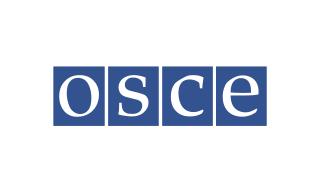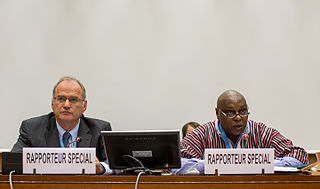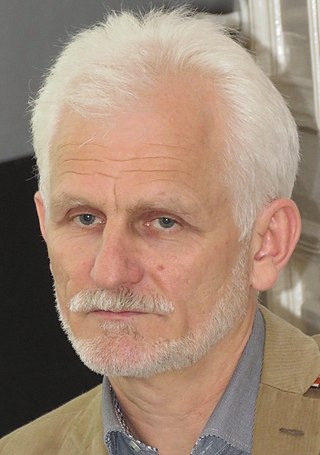Related Research Articles

The Organization for Security and Co-operation in Europe (OSCE) is a regional security-oriented intergovernmental organization comprising member states in Europe, North America, and Asia. Its mandate includes issues such as arms control, the promotion of human rights, freedom of the press, and free and fair elections. It employs around 3,460 people, mostly in its field operations but also in its secretariat in Vienna, Austria, and its institutions. It has observer status at the United Nations.

Special rapporteur is the title given to independent human rights experts whose expertise is called upon by the United Nations (UN) to report or advise on human rights from a thematic or country-specific perspective.

Märta Elisabeth Rehn is a Finnish former politician and diplomat. She served as the Minister of Defence of Finland during 1990 to 1995 and as an Under-Secretary-General of the United Nations during 1998 to 1999. She was also a member of the Finnish Parliament and parliamentary leader of the Swedish People's Party of Finland, and a member of the European Parliament.

The European Border and Coast Guard Agency, commonly known as Frontex, is an agency of the European Union headquartered in Warsaw, Poland. In coordination with the border and coast guards of member states, it exercises border control of the European Schengen Area, a task within the area of freedom, security and justice domain. Formally, the Agency's remit is to "support Member States on the ground in their efforts to protect the external borders"; it does not have authority to act otherwise unless "external border control" [by a member state] "is rendered ineffective to such an extent that it risks jeopardising the functioning of the Schengen area".
Human rights in the Philippines are protected by the Constitution of the Philippines, to make sure that people in the Philippines are able to live peacefully and with dignity, safe from the abuse of any individuals or institutions, including the state.

Human rights in Armenia tend to be better than those in most former Soviet republics and have drawn closer to acceptable standards, especially economically. In October 2023, Armenia ratified the Rome statute, whereby Armenia will become a full member of the International Criminal Court.

The condition of human rights in Moldova has come under scrutiny since 2002, and human rights organizations within Moldova and around the world have spoken out against what they feel to be unfair suppression of the independent media, as well as other abuses.

The government of Belarus is criticized for its human rights violations and persecution of non-governmental organisations, independent journalists, national minorities, and opposition politicians. In a testimony to the United States Senate Committee on Foreign Relations, former United States Secretary of State Condoleezza Rice labeled Belarus as one of the world's six "outposts of tyranny". In response, the Belarusian government called the assessment "quite far from reality". During 2020 Belarusian presidential election and protests, the number of political prisoners recognized by Viasna Human Rights Centre rose dramatically to 1062 as of 16 February 2022. Several people died after the use of unlawful and abusive force by law enforcement officials during 2020 protests. According to Amnesty International, the authorities did not investigate violations during protests, but instead harassed those who challenged their version of events. In July 2021, the authorities launched a campaign against the remaining non-governmental organizations, liquidating at least 270 of them by October, including all previously registered human rights organizations in the country.

Frank La Rue is a Guatemalan labor and human rights law expert and served as United Nations Special Rapporteur on the promotion and protection of the right to freedom of opinion and expression, from August 2008 to August 2014. Along with American human rights attorneys Anna Gallagher and Wallie Mason, Mr. La Rue is the founder of the Center for Legal Action for Human Rights (CALDH) and has been involved in the promotion of human rights for over 25 years. He was nominated for the 2004 Nobel Peace Prize by Mairead Corrigan, Northern Irish peace activist and 1976 laureate. Mr La Rue was previously the executive director of Robert F. Kennedy Human Rights Europe. He has also served as Assistant Director-General for Communication and Information at UNESCO.

Ales Viktaravich Bialiatski is a Russian-born Belarusian pro-democracy activist and prisoner of conscience known for his work with the Viasna Human Rights Centre. An activist for Belarusian independence and democracy since the early 1980s, Bialiatski is a founding member of Viasna and the Belarusian Popular Front, serving as leader of the latter from 1996 to 1999. He is also a member of the Coordination Council of the Belarusian opposition. He has been called "a pillar of the human rights movement in Eastern Europe" by The New York Times, and recognised as a prominent pro-democracy activist in Belarus.
Colombia has been in the throes of civil unrest for over half a century. Between 1964 and now, 3 million persons have been displaced and about 220,000 have died, 4 out of 5 deaths were non-combatant civilians. Between left and right-winged armed forces, paramilitary and/or guerrilla, and an often corrupt government, it has been difficult for Colombia to set up any kind of truth or reconciliation commission. That is why the first on the scene, so to speak, were representatives of the UN. The Office of the United Nations High Commissioner for Human Rights has been present in Colombia since 1997. Since 2006 though, there has been another international movement turning its attention to Colombia; namely the International Center for Transitional Justice (ICTJ). The works of both of these institutions have led to a few semi-official national committees to oversee truth seeking missions in the hopes of eventually achieving reparation. In 2012, the Colombian government and the Revolutionary Armed Forces of Colombia (FARC) began their fourth attempt to negotiate an end to the fighting. Peace talks between the Colombian government of Juan Manuel Santos and the FARC, the main guerrilla force in the country, are currently underway in Havana, Cuba. The main issues are land redistribution, integration of the FARC into the political arena and an end to the powerful cocaine cartels. Though past attempts at peace talks have failed, negotiators in Havana, Cuba have gotten significantly further than ever before. Experts agree that it is not unreasonable to expect an accord by the end of 2014. In the words of President Santos: "Only in a Colombia without fear and with truth can we begin to turn the page."

David Kaye is an American politician who served as the United Nations Special Rapporteur on the promotion and protection of the right to freedom of opinion and expression between August 2014 and July 2020. He was succeeded by Irene Khan. Kaye is clinical professor of law at the University of California, Irvine on public international law, international humanitarian law human rights and international criminal justice. He is co-director of the UCI Fair Elections and Free Speech Center working at the intersection of technology, freedom of speech and democratic deliberation. He is also the independent board chair of the Global Network Initiative.

Rashida Manjoo is an Emeritus Professor at the University of Cape Town in Cape Town and a social activist involved in the eradication of violence against women and gender-based violence. Manjoo was the United Nations' Special Rapporteur on Violence Against Women from June 2009 to July 2015.
Euro-Mediterranean Human Rights Monitor is an independent, nonprofit organization for the protection of human rights.

Human rights in the Kingdom of Denmark are protected by the state's Constitution of the Realm (Danmarks Riges Grundlov); applying equally in Denmark proper, Greenland and the Faroe Islands, and through the ratification of international human rights treaties. Denmark has held a significant role in the adoption of both the European Convention on Human Rights and in the establishment of the European Court of Human Rights (ECHR). In 1987, the Kingdom Parliament (Folketinget) established a national human rights institution, the Danish Centre of Human Rights, now the Danish Institute for Human Rights.
In migration, pushback is "a set of state measures by which refugees and migrants are forced back over a border – generally immediately after they crossed it – without consideration of their individual circumstances and without any possibility to apply for asylum". Pushbacks violate the prohibition of collective expulsion of asylum seekers in Protocol 4 in countries party to the European Convention on Human Rights and often violate the international law prohibition on non-refoulement.

Volker Türk is an Austrian lawyer and United Nations official. He has been the UN High Commissioner for Human Rights since October 2022.

Sarah Mardini, alternative spelling Sara Mardini, is a Syrian former competition swimmer, lifeguard and human rights activist. Fleeing her country in 2015 during the Syrian civil war with her sister, Olympic swimmer Yusra Mardini, they pulled their boat with other refugees towards the Mediterranean coast of Greece, saving themselves and the other passengers. Continuing their journey across the Balkans, they reached Berlin, Germany, the same year. She was named one of the 100 most influential people in the world by Time magazine in 2023, alongside her sister.
Seán Binder is a German-born Irish human rights activist and certified rescue diver who has spent most of his life in Ireland. The son of a refugee father from Vietnam and a German mother, he grew up in Ireland and later studied at universities in Dublin and London. From 2017 to 2018, he volunteered with a humanitarian non-governmental organization on Lesbos island, Greece, assisting refugees arriving in small boats from the nearby Turkish coast.
References
- ↑ Benincasa, Luciana; Karavia, Olga; Despoina, Skoulariki (2004). "The Greek State, the Muslim Minority of Western Thrace and Education: Shifts Under Way?". Educational Strategies among Muslims in the Context of Globalization. pp. 263–279. doi:10.1163/9789047402923_016. ISBN 978-90-474-0292-3.
- ↑ "Rights groups take legal action against EU border and coast guard agency". www.jurist.org. Retrieved 22 November 2021.
- ↑ "Παραπέμπονται για κακουργήματα οι υπερασπιστές της νομιμότητας". www.efsyn.gr (in Greek). Retrieved 21 December 2022.
- ↑ "Criminal investigations opened against human rights defenders Panayote Dimitras, Tommy Olsen, Madi Williamson and Ruhi Akhtar". UN Special Rapporteur on Human Rights Defenders. 9 March 2023.
- ↑ "Greek authorities should reverse the trend undermining the work of human rights defenders and journalists". Commissioner for Human Rights. Strasbourg. 12 January 2023.
- ↑ Rule of Law and media freedom in Greece (Resolution 2024/2502(RSP)). The European Parliament. 7 February 2024.